
Nun Rebecca, you were born and grew up in Brazil, the most populous Catholic country. How did you become an Orthodox Christian? And how did the Orthodox community of Brazil, of which you were a part, emerge and grow?
You are right - Brazil is the largest Catholic country in the world. Less than one per cent of its population are Orthodox. For a long time, Orthodoxy was most common among immigrants from Orthodox countries, such as Greece, Russia or Ukraine. The churches were very few, and they existed more like private clubs. To me, this was quite understandable. Far away from their homes, people were going to church to stay connected to their cultures and countrymen.
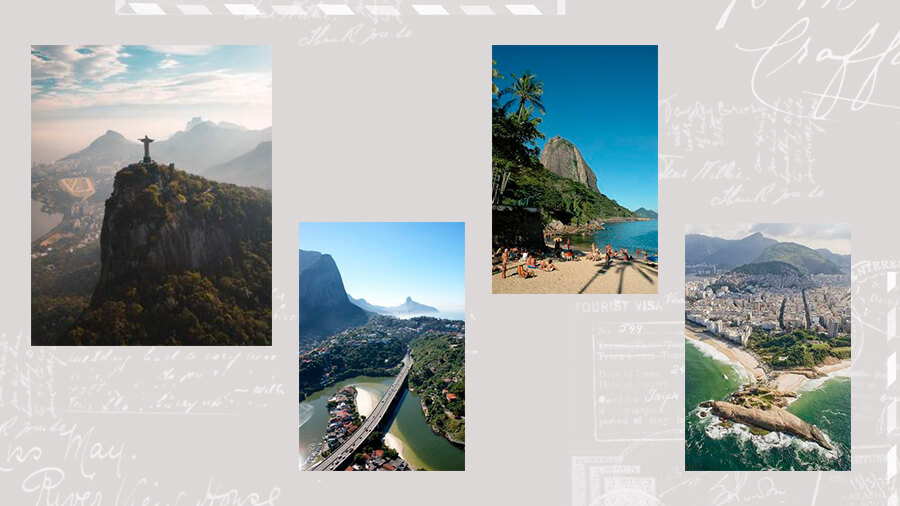
Yet the Church is the body of Christ, not just a human organisation. In this sense, the Church is supranational. Here, there is no Gentile or Jew, Barbarian or Scythian, but Christ is all, and Christ is in all (Colossians 3: 11). At the same time, a significant number of Brazilians could not find the truth in the teachings of the Catholic or Protestant faiths. They were looking. Late in the 1980s, many of these people took an interest in physiophilosophy. My mother was among them. She went to study astrology. My father was also interested. Under the guidance of a charismatic leader, they studied philosophy, esoterics, oriental traditions, and the teachings of Buddhism, Taoism and Christianity.

At some stage, they took an interest in the writings of the Fench philosopher Rene Guenon. He died many years ago, so they contacted the translator of his books into Portuguese. He lived and worked in Portugal, but he agreed to meet us on his trip to a symposium in Brazil. We met, he answered our questions and made an exciting presentation. On the last day of his visit, he came in a black vestment of an Orthodox priest and said: I am Father Athanasius, a priest. I have been telling you about the Orthodox faith. He invited our group to visit Portugal and meet the bishop. Eight members of the group accepted the invitation. - The more they learned about the Orthodox faith, the stronger was their desire to accept baptism.
Eventually, the astrology school in Rio became a school of the Orthodox faith. People who used to make their living compiling horoscopes changed their ways, and began to bring the good news of Orthodox Christianity to their countrymen. In these years, many accepted baptism. Large groups of catechumens were baptised every Great Saturday. With the blessing from the bishop, people were baptised in the sea of in a swimming pool. Church activists rented a house in Rio to convert into an Orthodox Church. Many parishioners donated their time to put up an iconostasis. Church and liturgical literature was translated into Portuguese for use in worship.
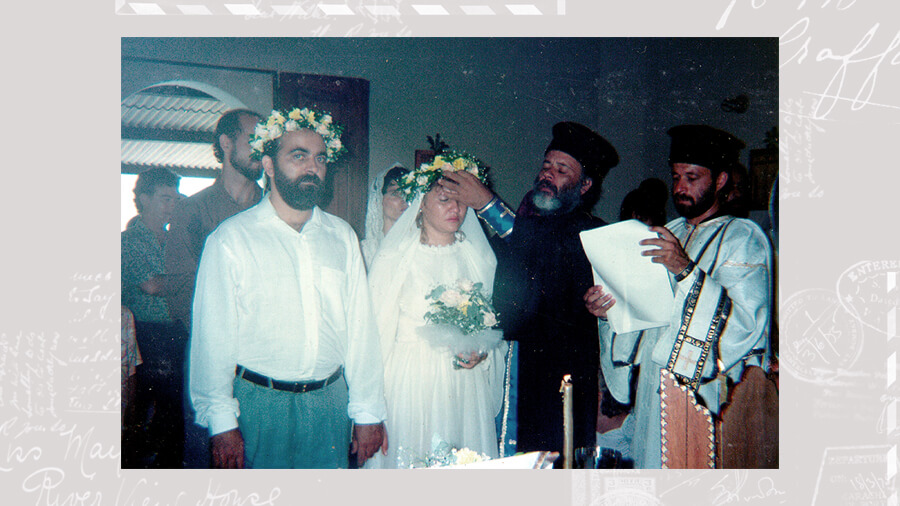
Many people came to the services. They discussed God, baptism, church and spiritual life. The parish was growing. We established a fine church choir under the leadership of a professional conductor. A Sunday school was opened. Every Sunday, as the church choir was practising, the parishioners were engaged in handicrafts, baked altar bread, did housekeeping, painted icons and made vestments. - We became a large and close-knit family.
The Orthodox faith is an inspiration for great feats and hard work. This prospect is not attractive to most - only a few are willing to work hard for their salvation. In Brazil, life is full of fun and glamour - you do not have to live it the hard way. Yet we do not despair. We started with a single house that we rented for the church. By the time of the ordination of my father, there were several active churches in Rio alone, and each had a priest.
How did conversion to Orthodoxy change the life of your family?
To us, the advancement to Orthodoxy was a test of our unity. It was hard, but we came out stronger and more united in the end. In the beginning, my father was very sceptical of church life and he did not want my mother to become an Orthodox. When his friends returned from Portugal, he said: "Look at them. Only yesterday they were astrologists, and now they are priests. This is not a church, it is a sect!"

I do not know what happened between my mother and father, but they separated. The separation was very hard on my mother. She had to make a difficult choice by giving up her job. She was writing horoscopes, and the money that she earned that way supported our family. My mother chose to become an Orthodox Christian and took baptism. I do not remember how we were managing then. We were getting help from our grandparents, maybe. But still, life was very difficult for us then. Our friends from the newly formed Christian Orthodox community were giving us a lot of reassurance.
When our father left, the priest recommended to all of us that we read a prayer together. I remember my tearful please to the Mother of God for her intercession for our family. We prayed together in the evening before the trial over the division of the family estate. When we woke up the next morning, our father was home. My parents were together again. Little by little, my father started to come to church. Perhaps he had noticed the changes in the people he knew, and he was changing as well. It is not up to us to change people's hearts, but I now realise that my father's change of heart must have happened through the pure prayers of his children.
![]()
My father took baptism, joined the church choir and took up altar service, At some point, our choir was invited to Portugal. During that trip, my father was ordained a deacon. He was on his way to the priesthood. He was ordained during the Bishop's visit to Brazil. My mother wanted to be baptised with the name of Sophia. Saint Sophia had three daughters. Years after my father became a priest, we had a third child, a girl. My mother learned about her pregnancy on the feast day of the Holy Martyr Sophia.
Our family's lifestyle also changed greatly after my father's ordination. Our home became a church, with many icons. At church, we were the first to come and the last to go. Father had almost no spare time left - he dedicated almost all of his time to his service at Church. Yet in Brazil, it is not possible to make a living just by being a priest. A priest must also have a second paying job to feed his family. My father worked as a web designer and photographer, and he launched the first Orthodox web site in Brazil. I translated sermons and articles for this site into Portuguese and then helped my father as a group administrator in social media.
You have had the desire to become a monastic since you were twelve. What influenced this choice?
In the families of the former astrologists who converted to Orthodox Christianity, many sons became priests and deacons, and many daughters went to monasteries. This was not unusual - the lives of these families was revolving around the Church.
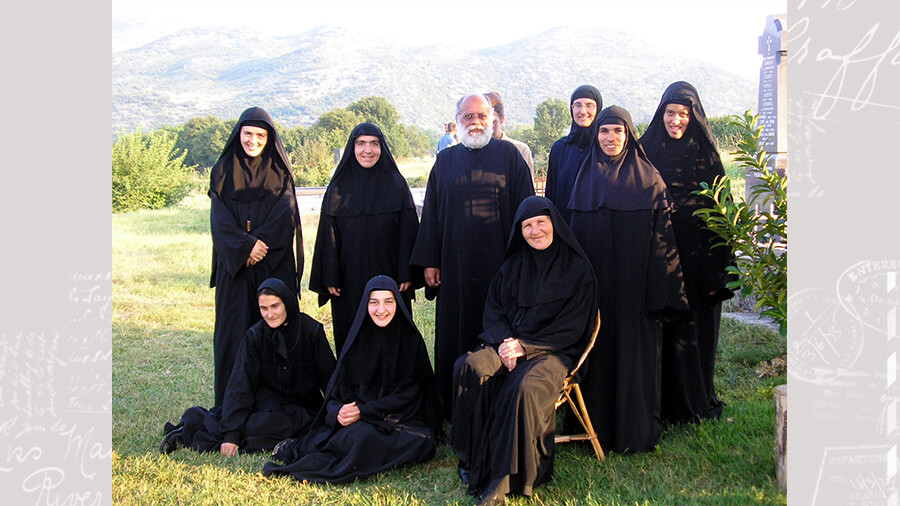
I was twelve when my father took our parish choir to Portugal. That was the first time I had heard about a monastery, and I said to myself, “I want to become a nun!” People asked me about my reasons, - And I replied, “I want to be a monastic because monastics do not have to have a paid job” “But monastics do have to work a lot,” they countered. “You do not understand,” I cried. “I do not want my life to be all work and home. I want a life.” At twelve years of age, I wrote to the bishop in Portugal several letters saying how much I wanted to be a nun. - He did not answer a single letter. Six years later, when I had forgotten all about them, I got an invitation from the bishop to visit a monastery.
The Bishop told me about life in Christ, and I got the feeling that it was real. As I was leaving for Portugal together with the other young women from Brazil, I was confident that I was going to come back. But when I walked into the monastery, I felt I wanted to stay there forever. After Portugal, I stayed at the monasteries of France, Montenegro, Serbia, and Bosnia Herzegovina. I got the blessing from my bishop to study the laying of mosaics in a monastic workshop, so I came to Saint Elisabeth Convent in Minsk. I planned to stay here for three months, and I have been there for almost four years.
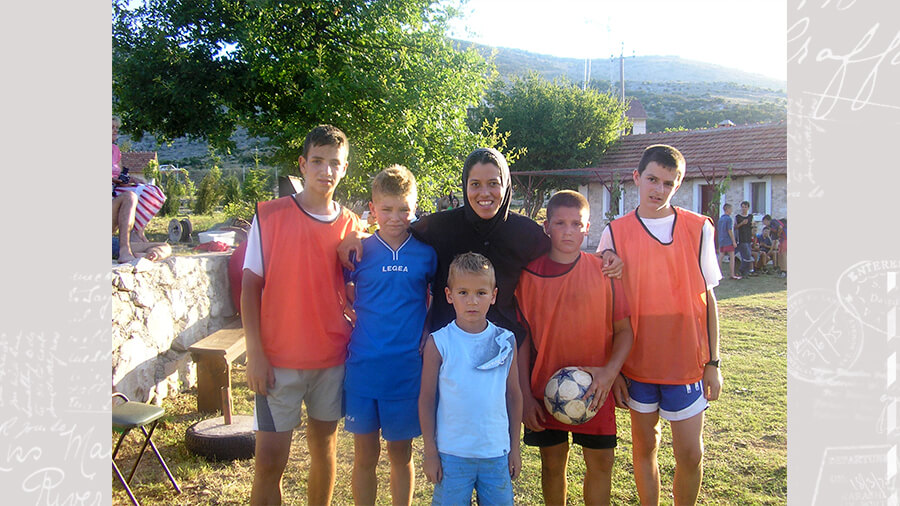
I took my monastic tonsure at a young age. I did not appreciate then how much pain I had caused pain to my mother with my decision. My father showed greater understanding. But nobody ever tried to stop me. My parents shared the pain, but they also understood that today's choices of their children determined the future of Orthodoxy in the generations to come.
Should a monastery be a place for solitary prayer, or should it be open to the world, pursue an active ministry and promote the truth of our faith? Which vision of a monastery appeals to you the most?
Deep in my heart, I am a Grekophile and I am attracted to Byzantine. I was educated this way, and I grew in this tradition as a monastic and a person. Our monastic sisterhood had strong ties with the monasteries of Greece and Athos, and I found their monastic tradition more appealing. Some monasteries in Greece have over 120 monks living quite secluded and isolated lives. Each tonsured monk lives in his own cell.
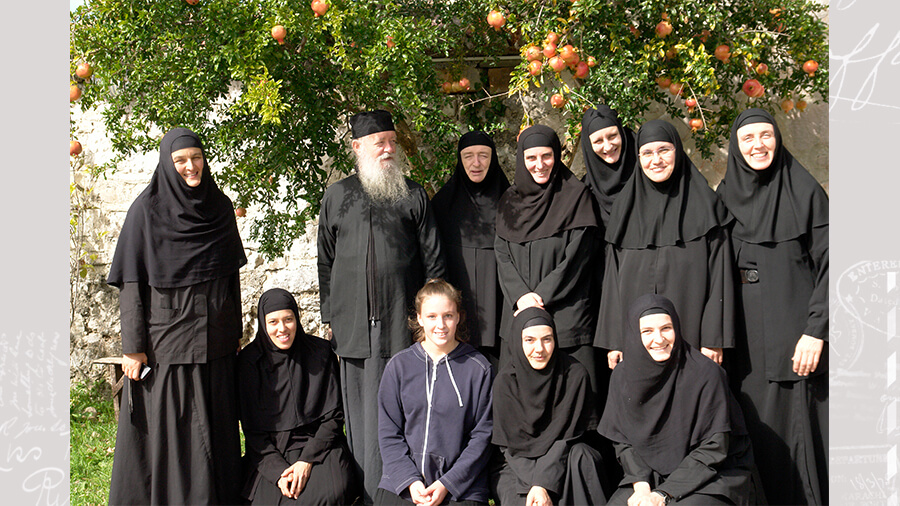
Yet, despite my exposure to the Greek monastic tradition, I see myself rather as a missionary than a monastic from a secluded monastery. An abundance of information and the presence of large numbers of the laity are not conducive to secluded prayer; however, few monasteries are in a position to isolate themselves from the people, particularly in countries like Brazil, where people are only starting to know Orthodoxy. In Serbia, some monasteries open their doors to the laity for the Divine Liturgy; at the end of it, they will be offered a cup of coffee and politely asked to leave. This type of arrangement, however, would probably be unconducive to the success of the mission of the monasteries in many countries.
Saint Elisabeth Convent follows the complete rule of worship, which is very helpful. The personality and style of its spiritual father inspire me a lot. But when the worship service ends, I often have the feeling that I go to my obediences too soon, and do not have enough time to spend in solitary contemplation and one on one conversation with God. Previously, I had not had any experience of working with the laity who have quite different energies. Lay people ask many questions, they talk a lot, and inevitably, I have to follow suit. A monk who spends a lot of time with the laity must be very steadfast spiritually.

In Western Christianity, too, some monasteries are closed, and others are open, For example, the Carmelites uphold the spiritual tradition of monks hermits, while the sisters of the order of Mary Therese are busy helping the elderly, children, the sick and other needy people. Every monk chooses a monastery according to their liking. In my view, we are living at a time when helping others is the most important. In this respect, I see Saint Elisabeth Convent as a monastery with a mission.
Brazil is known not only for its Catholic tradition but also for its football. You are an avid football player and have not abandoned football as a monastic. What role does football play in your monastic and spiritual life?
In Brazil, I played football professionally. When I moved to Bosnia Herzegovina, I had the blessing from the mother superior of my monastery to conduct football practice with the children who were coming to the monastery. We had matches every Saturday, and after each match, we invited the children for the Divine Liturgy.
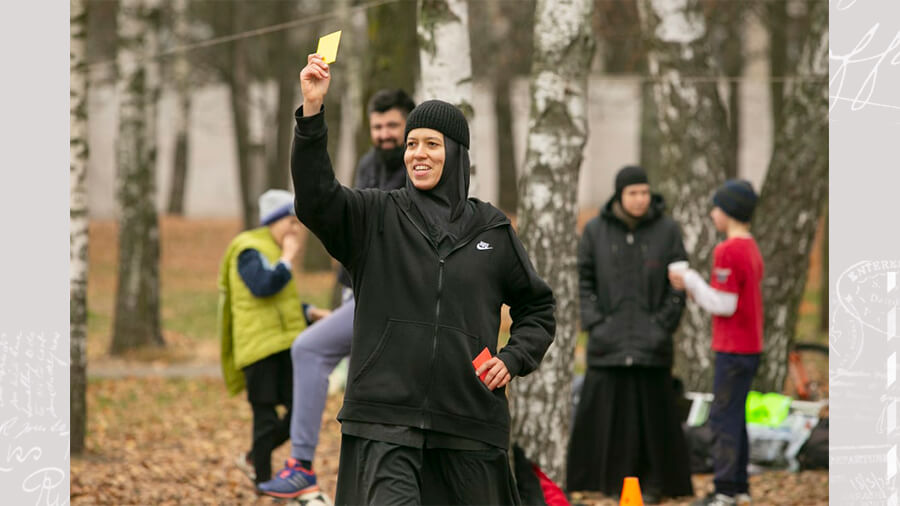
Visits to the monastery and exposure to the faith strengthened the children's spirits and helped them overcome the traumatic aftermath of the war In Bosnia and Herzegovina, which made many of them orphaned. The children have grown up, and they are now 20 - 25 years of age. They are living independent lives, and many have families of their own. We have kept in touch with many of them.
Few, if any, of these children will become world-class professional footballers, but all will have had the experience of being a disciplined team player, and obeying the essential routines, such as coming for the practice on time and listening to their coach.
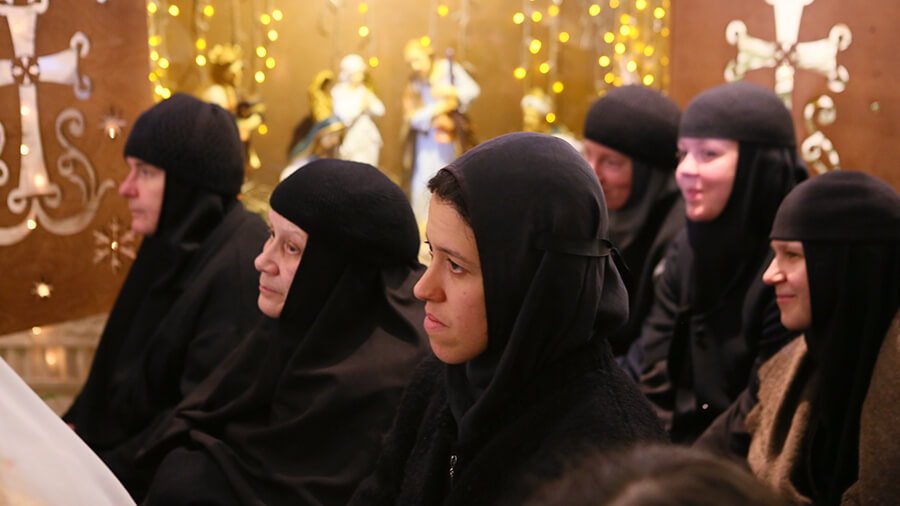
I have always enjoyed teaching children football - in Portugal, France, Serbia or Belarus. You do not have to watch your back or be diplomatic. When I work with children, I relax. It is a welcome change from my habits. Adults may have among them numerous misunderstandings that lead to the loss of trust and openness in their relationship. With children, it is a lot easier. They simply trust you as you trust them. As simple as that. I find that football continues to play a very positive role in my life. There is no complex philosophy in sport, you just play. As in any game, there will be winners or losers; there might even be a draw. Practising, playing, working hard and keeping discipline is essential in all circumstances. They are things that help you grow as a person.
What does monasticism mean to you personally?
I sometimes asked myself the question: "Why am I from Bazil? I could have been born in Belarus or Serbia and be a nun here, but I was born over there."
Yet, monks are people who seek freedom from their selfish desires. They surrender their will to God, and their very lives to do His will. As the Bible says, give me your heart and let your eyes delight in my ways (Proverbs 23: 26).
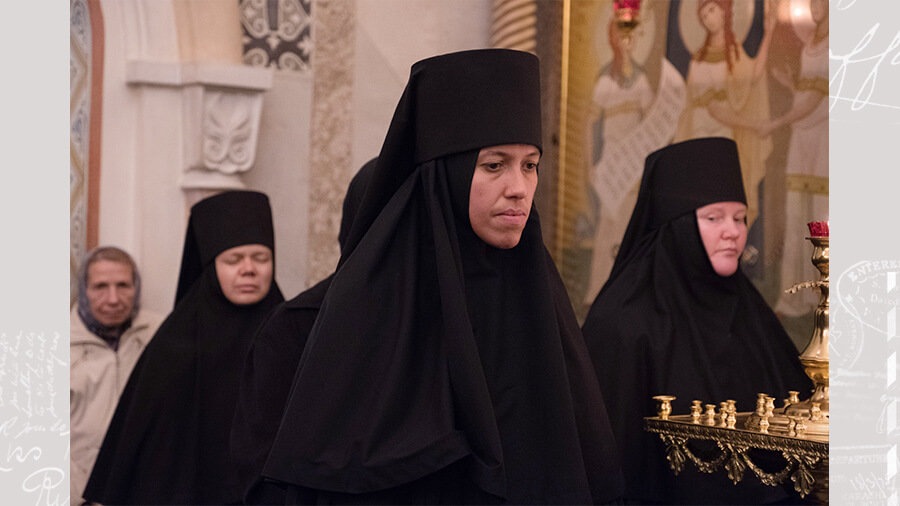
The Holy Venerable Paisios of the Holy Mount wrote these beautiful lines: “We should all be like a blank piece of paper, And let God write on it.” I became a monastic to bring salvation to my soul. In this sense, the meaning of monasticism is the same irrespective our your location - Belarus, Serbia or Brazil.